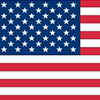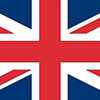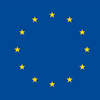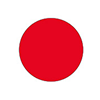Information on changes to international benchmark interest rates
The below is for information purposes only, to inform you of changes taking place within the financial services industry. There’s no need to take any action for you or your clients.
At Columbia Threadneedle we are working to ensure minimal impact on our clients. We will communicate with you in due course if your investments are affected.
Changes are being made to a series of international benchmark interest rates, referred to as IBORS (International Benchmark Interest Rates) and including the London Interbank Offered Rate (LIBOR). LIBOR will be retired by the end of 2021, in favour of more robust, “risk free rates” or RFRs. Most other IBORs will also be replaced or reformed.
This change will have impacts for asset management firms such as Columbia Threadneedle Investments and some of the investments we manage on behalf of our clients. Our overall exposure to IBOR/LIBOR is very small, and we do not expect material changes to the nature or risk profile of our investment funds or portfolios, or to the way they are managed.
The transition to risk free rates is a priority project for us, with executive sponsorship from our EMEA CEO Nick Ring. We have dedicated resources to manage the transition thoroughly and carefully to ensure a smooth experience for our clients and our business.
Both LIBOR and other IBORs are widely used as a short-term interest rate benchmark for financial products, including funds and investment securities (e.g. in bonds).
In 2017, the UK’s Financial Conduct Authority announced that as of the end of December 2021 banks won’t be compelled to support the LIBOR benchmark. All banks and market participants therefore need to work towards removing dependencies on LIBOR by this date¹.
RFRs are overnight deposit rates, based on the observation of real transactions as opposed to forward-looking, estimated bank submissions. The RFR chosen will differ by currency. In the UK, for example, the new benchmark will be SONIA, the Sterling Overnight Index Average. The below table shows some of the replacement RFRs now in place. Others may be created in due course (eg a forward-looking term rate). We are monitoring this closely and following recommendations from global working groups where appropriate.
Table 1: LIBOR alternative RFR for five different currencies
Currency | RFR | Working Group | Description |
|---|---|---|---|
 US Dollar | Secured Overnight Financing Rate (SOFR) | Alternative Reference Rates Committee | A broad measure of the cost of borrowing cash overnight collateralised by U.S. Treasury securities. |
 Sterling | Sterling Overnight Index Average (SONIA) | Working Group on Sterling Risk-Free Reference Rates | Based on actual transactions and reflects the average of the interest rates that banks pay to borrow sterling overnight from other financial institutions. |
 Euro | Euro short-term rate (€STR) | Working Group on Risk-Free Reference Rates for the Euro Area | Reflects the wholesale euro unsecured overnight borrowing costs of banks located in the euro area. |
 Yen | Tokyo Overnight Average Rate (TONAR) | Study Group on Risk-Free Reference Rates | An uncollateralised overnight call rate. |
 Swiss | Swiss Average Rate Overnight (SARON) | The National Working Group on CHF Reference Rates | A rolling, volume-weighted average based on transactions concluded and reference prices posted on a given trading day. |
For information purposes only.
To manage the transition to RFRs, Columbia Threadneedle has established a multidisciplinary and global project team, overseen by a senior Operating and Steering Committee.
Our investment teams continue to assess any exposure to IBORs in their portfolios and monitor the securities’ underlying liquidity. Where possible, we are working with issuers and other market participants to proactively transition our existing exposures, for example through seeking consent. We will also limit new exposures to financial instruments that reference IBORs and have maturities beyond 2021.

